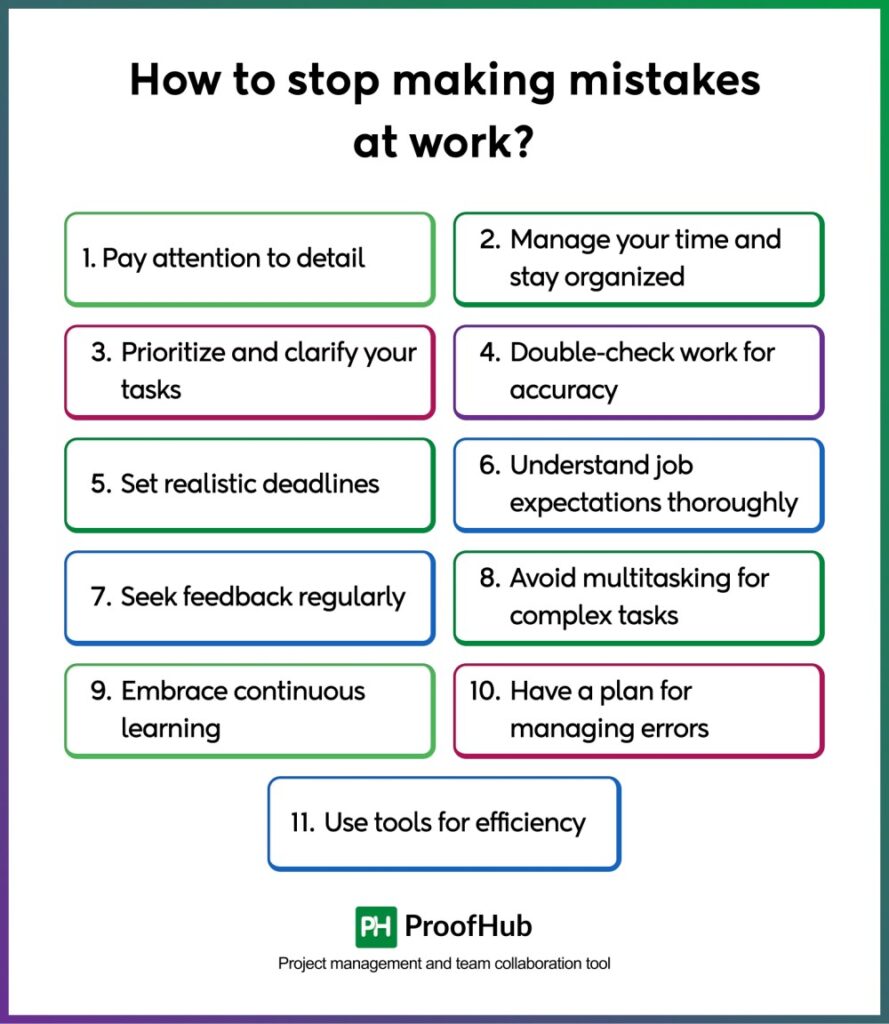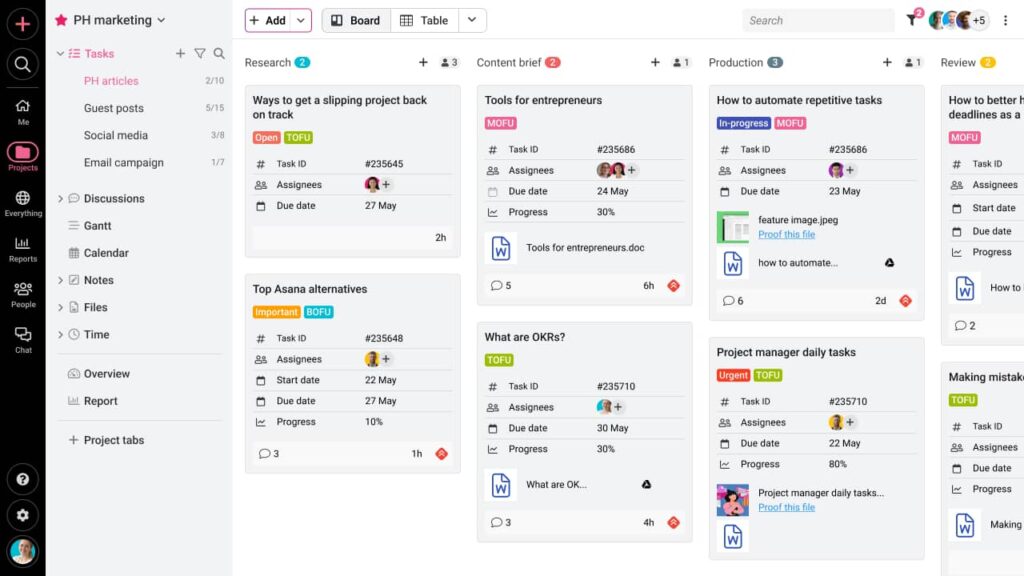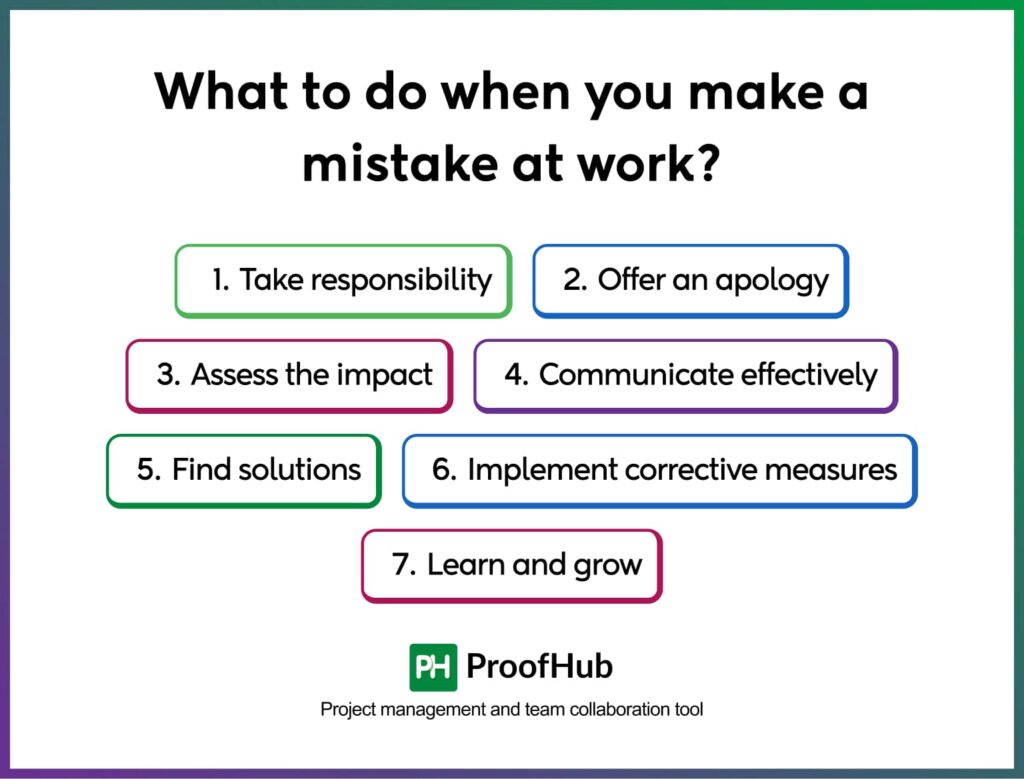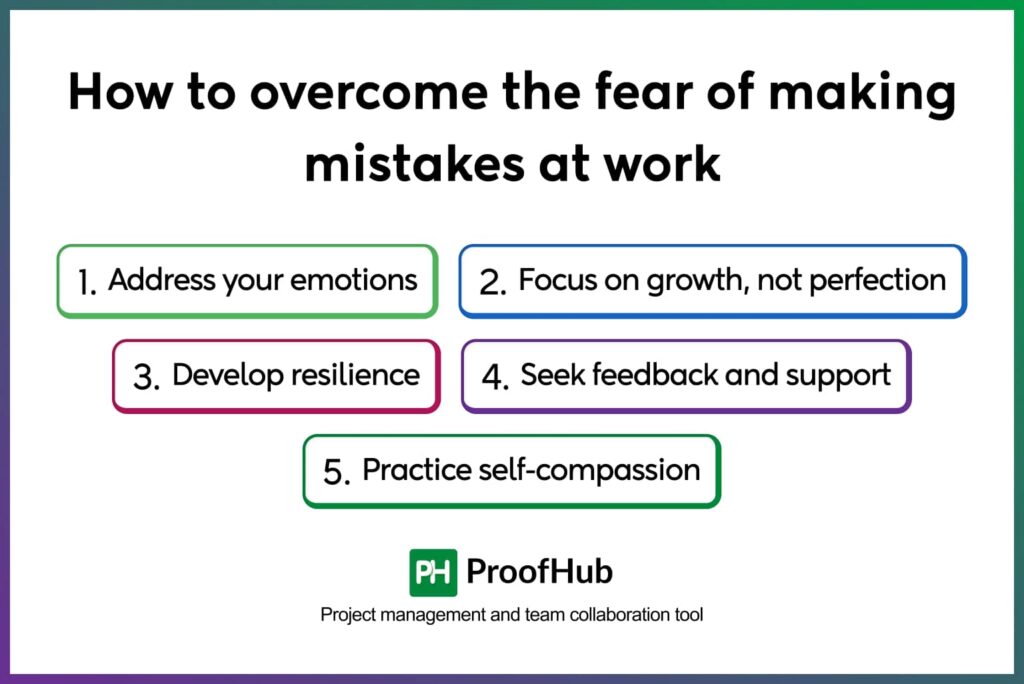Introduction
Everyone makes mistakes in the workplace, and it is part of the process. However, repeated mistakes can affect your career growth, productivity, team dynamics, and organizational success.
Don’t worry; you can overcome these challenges using the right strategies, habits, and self-awareness. In this article, you’ll learn how to accept mistakes and turn them into opportunities for growth.
So, if you’ve made mistakes at work before or want to avoid making them in the future, this is your go-to guide.
Why should you focus on avoiding mistakes at work?
Avoiding mistakes at work helps maintain your professional reputation, reduces personal stress, improves team efficiency, and protects the company’s image. When you repeatedly make mistakes, you seem unreliable to your team members and supervisors, which can affect your career progress.
Here are a few significant reasons why you should avoid making mistakes at work:
1. Personal repercussions
When you make mistakes, it can reflect poorly on your leadership skills. This may lead to increased supervisor attention and limit your career growth. Your credibility and trustworthiness can suffer, making it harder for you to advance in your career.
2. Impact on team members
Constantly fixing mistakes takes time and resources. Your team must divert their focus from essential projects to handle errors and slow progress. It can bring down your team’s morale, make it harder for everyone to work together, and reduce productivity.
Your team members feel demotivated, which affects overall team performance. Mistakes also disrupt team dynamics and hinder progress toward shared objectives.
3. Project disruptions
Mistakes can have a domino effect on projects. They cause delays, cost overruns, and lower the quality of your work. These disruptions can affect overall performance.
In 2023, 73% of data breaches occurred due to human work errors.
That’s a lot! Mistakes can hold back your organization and make it difficult to achieve significant targets.
4. Client relationships
Mistakes in any aspect of your work can significantly impact your clients. Repeated mistakes can make your clients trust you less and be less happy with your work, which is essential for keeping long-term partnerships and creating more business opportunities.
5. Increased stress
Mistakes can be mentally and emotionally taxing. Worrying about potential repercussions and the need to correct errors can lead to increased stress levels, further impacting work performance and job satisfaction.
How to stop making mistakes at work?
Here are some practical tips to help you improve your work performance and reduce errors:

1. Pay attention to detail
You need to focus on being thorough and precise with every task. Always take a moment to review your work before considering it final.
Make it a work habit to question your assumptions and verify your information. This extra step can catch mistakes before they happen.
2. Manage your time and stay organized
Effective time management is key to reducing mistakes. You can create a schedule and prioritize tasks based on deadlines and importance.
Break your larger projects into smaller, manageable steps to prevent feeling overwhelmed. You can also use tools like calendars, to-do lists, and project management software to stay on top of your tasks.
3. Prioritize and clarify your tasks
Identify which tasks are urgent and important, and tackle those first. If you’re unsure about any requirements or expectations, don’t hesitate to seek clarification from your supervisors or colleagues.
Make sure you allocate enough time for complex tasks so you don’t have to rush through them.
4. Double-check work for accuracy
Always review your work for errors or inconsistencies. To do so, you can use checklists or have a peer review of your work. This will ensure you don’t miss anything important.
Take regular short breaks between tasks. This will help you refresh your focus and reduce the chance of making mistakes.
5. Set realistic deadlines
Setting unachievable deadlines can lead to stress and errors. Make sure you know how much you can get done, communicate with your supervisors about timelines, and have enough time to complete tasks accurately.
6. Understand job expectations thoroughly
Not understanding your role and responsibilities can lead to confusion and mistakes. Take time to understand your job’s requirements, ask questions when unclear, and clarify with supervisors if expectations are not clearly set. Clarifying your role will help you focus on the right priorities.
7. Seek feedback regularly
Constructive feedback is an opportunity to learn and improve. Ask for feedback from supervisors and colleagues, and treat it as a chance to understand where you might be prone to errors and how to avoid them in the future.
8. Avoid multitasking for complex tasks
Multitasking often leads to errors, especially when handling complex tasks. Focus on one major task at a time, and dedicate your full attention to ensure accuracy before moving to the next task.
9. Embrace continuous learning
Learn from your past mistakes, and seek opportunities to learn new skills in your industry. Enhancing your skills helps you grow professionally and makes you more efficient and productive.
10. Have a plan for managing errors
Mistakes can happen despite putting in your best efforts. Ensure you have a process for identifying, addressing, and fixing errors. Being prepared allows you to handle mistakes professionally without letting them affect your overall performance.
11. Use tools for efficiency
You can use a collaboration and communication tool like ProofHub to work more efficiently and accurately. ProofHub allows you to organize all your tasks and projects in one place. This makes it easy to see what needs to be done and reduces the chance of forgetting something important.
With centralized communication features, everyone on your team stays on the same page. You can discuss tasks, share updates, and give feedback on everything within the platform. This minimizes misunderstandings and ensures everyone knows what’s happening.

What should you do once the mistake is made?
Everyone makes mistakes, but how you handle them can make a big difference. Here are seven steps you can follow to manage the situation effectively and maintain your professionalism.

1. Take responsibility
When you make a mistake, the first step is to own up to it. That means taking responsibility for what went wrong without making excuses or blaming others. This shows that you are mature and accountable for your actions, which helps build trust with others.
Accepting responsibility shows you are willing to learn from your mistakes and make things right.
2. Offer an apology
When you mess up, it’s important to apologize sincerely to anyone affected. Whether it’s a colleague, client, or supervisor, make sure your apology comes from the heart.
Show that you understand the inconvenience or harm you caused. Be genuine and acknowledge how your actions impacted others. This helps to rebuild trust and shows that you value their feelings.
3. Assess the impact
After making a mistake, it’s essential to consider how it has affected your projects, deadlines, and client relationships.
Understanding the impact will help you determine how to handle the situation and make things right. Take some time to think about the consequences so you can address the issue adequately.
4. Communicate effectively
When you make a mistake, you must communicate effectively with everyone involved. This means letting them know what happened and what it all means. You need to be clear and transparent when you talk to them.
Pro tip: Use ProofHub to keep everyone in the loop. Its collaboration features, like announcements and discussions, let you share information quickly and clearly, keeping everyone aligned and collaborative. ProofHub helps manage situations, reduce confusion, and maintain a productive work environment.
5. Find solutions
The next step is to act quickly and fix things immediately to reduce negative impacts. Get together with your team to brainstorm ideas on how to solve the problem. Then, put those solutions into action.
To do so, you must keep everyone in the loop and communicate openly throughout this process.
6. Implement corrective measures
After making a mistake, step back and figure out why things went wrong. You need to look for the root cause behind the error and then take action to fix it.
You can do this by putting new protocols in place to stop the same mistake from happening again. This means setting up new procedures or changing how things are done.
7. Learn and grow
The last step is figuring out how to do better next time. Look at the mistake as a chance to learn and grow.
You must stay positive and see this as a way to develop yourself personally and professionally. Keep that mindset in check, and you’ll be on your way to making progress.
How to overcome the fear of making mistakes at work?
Everyone makes mistakes at work, and feeling anxious or fearful about them is normal. But this stress leads to more mistakes.
According to research, 52% of respondents said they make more mistakes when they are stressed.
Here are a few tips for you to overcome this fear:

- Address your emotions: Recognize and accept your anxious feelings as a natural part of your work experience. You need to overcome imposter syndrome. This is the first step to moving past them.
- Focus on growth, not perfection: See your mistakes as opportunities to learn and improve. Instead of fixating on flawless outcomes, celebrate your progress, learn from your mistakes, and grow.
- Develop resilience: You need to keep in mind that setbacks are temporary. If you stay determined, you can get through them. Think about the past challenges you’ve made it through to boost your confidence in handling new ones.
- Seek feedback and support: Constructive feedback helps you identify areas for improvement and build confidence. You need to surround yourself with supportive people who help you grow and give you advice when needed.
- Practice self-compassion: The most important thing is to be kind to yourself when you mess up. Treat yourself with the same understanding you would offer a team member in a similar situation. You need to understand that mistakes do not define your worth or competence.
Bonus advice: What to do when your team member makes a mistake?
As a manager, you must be understanding and supportive when dealing with mistakes. When a team member makes a mistake, you need to address and fix those mistakes and help your team grow and maintain a positive work environment.
Here’s how you can handle it to make your team member feels safe, valued, and motivated.
- Empathize first, correct later: Put yourself in their shoes. You need to show empathy rather than jumping straight to blame. Let your team members know you understand and support them before you discuss the mistake itself.
- Create a safe space for communication: Make sure your team feels comfortable admitting mistakes. You can encourage open communication and assure your team they can ask for help without fear of judgment or punishment. This will create a work environment where everyone can openly address their mistakes.
- Provide constructive feedback: When it’s time to address the mistake, focus on providing constructive feedback. You need to explain what went wrong and why. Also, it gives clear guidance on how to improve. Try to be specific and objective, offering actionable steps for future situations. This way, your team member knows exactly what to do next time.
- Encourage learning and growth: As a manager, help your team members learn from their mistakes and how they can apply these lessons to future tasks. You can encourage them to adopt a growth mindset, viewing mistakes as stepping stones to improvement.
- Follow-up and support: After discussing the mistake, you can offer support and guidance to the team member. Regularly check in on their progress and assist when needed.
Conclusion
Making mistakes at work is inevitable. It is important to own up to them and learn from them to turn these challenges into opportunities for growth.
Continuous improvement, self-reflection, and open communication can help you better cope with and even avoid mistakes at work. You can also enhance your performance and build a healthier, more productive work environment.
ProofHub can help you prevent these mistakes. With its comprehensive functionalities, you can manage tasks, collaborate with your team, and keep track of everything you need to do. ProofHub lets you streamline your work processes, ensuring nothing important gets overlooked.
Related articles
- Work life balance tips: How to improve work life balance & be happy
- Stress at work: 5 Surefire tips that will help you cope with it
- Happy work culture – what it is, why it matters, and how it’s built
- How to avoid distractions at workplace
- 11 Best organization apps for more productive workplace in 2025
FAQs
How to stop feeling bad after making a mistake at work?
When you make a mistake at work and feel bad about it, take a deep breath and tell yourself that everyone messes up sometimes. Acknowledge what went wrong and think about how you can do things differently next time.
You can talk to a colleague or your superior about the mistake and figure out how to make things better. Instead of thinking too much about the mistake, focus on finding solutions. And keep in mind that one mistake doesn’t mean you’re not good at your job.
What tools can help you manage and learn from mistakes?
You can use several tools to manage and learn from mistakes at work. One method is to keep a mistake log to track what went wrong and how you fixed it. Regular team meetings allow everyone to discuss and learn from each other’s errors.
Training programs and workshops can improve your skills and reduce mistakes. A project management tool like ProofHub can help you stay organized and prevent errors from happening in the first place.
How should I communicate a mistake to my team or senior?
First, be honest and direct. Start by explaining what happened and taking responsibility for your part in it. Clearly describe the mistake and its impact, and then explain what you’re doing to fix it and make sure it doesn’t happen again.
Stay calm and focus on finding a solution rather than blaming others. This shows that you’re being proactive and committed to getting better.

